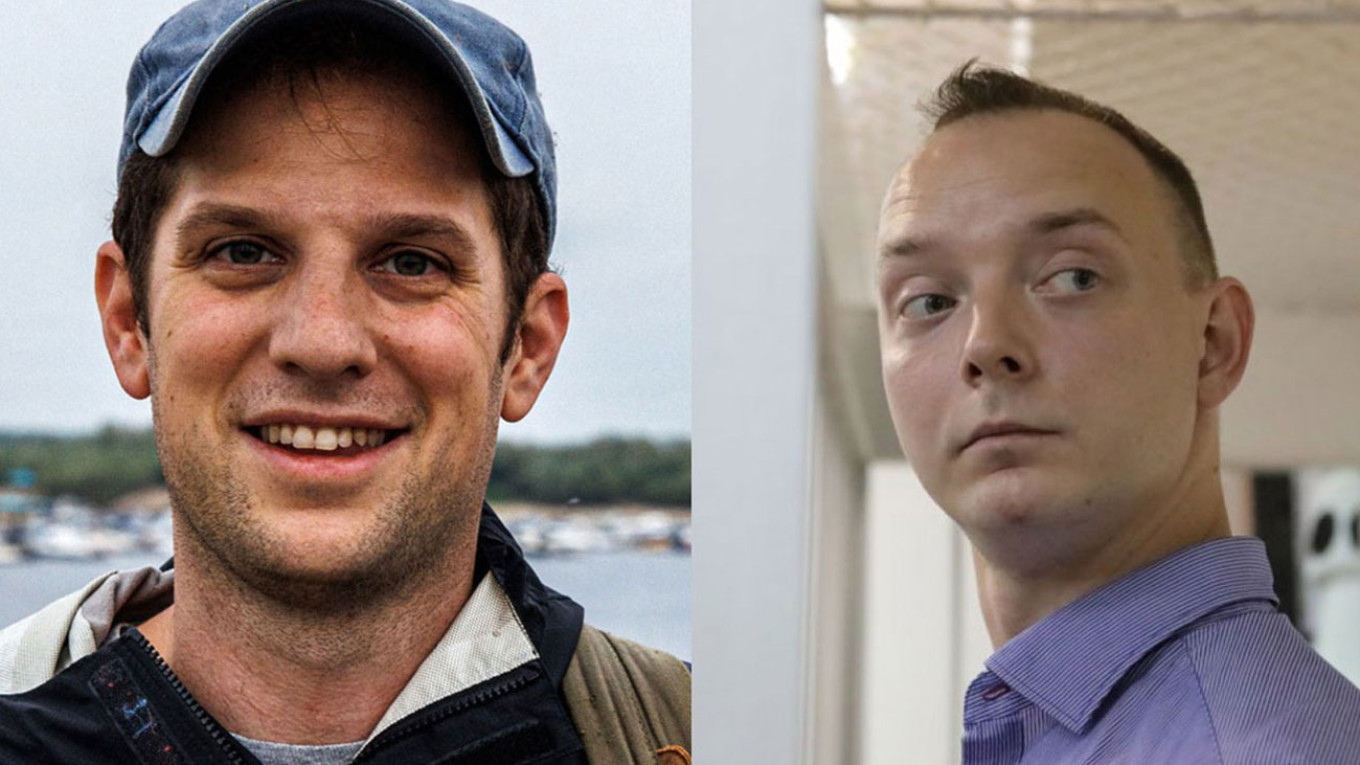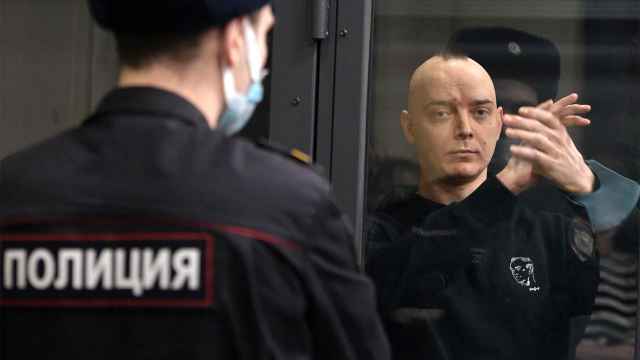On March 30, I woke to the news that my acquaintance, Wall Street Journal reporter Evan Gershkovich, had been arrested in Yekaterinburg. I gave up believing that a foreign passport will protect you from the Russian security services some time ago. Nevertheless, I nurtured a faint hope that Evan, a close friend of many of my colleagues, would be released after a brief interrogation. When it became clear he would face espionage charges and was being transferred to Moscow’s infamous Lefortovo Prison, my flashbacks to July 7, 2020, began.
Back then, the coronavirus pandemic was raging and my partner, journalist Ivan Safronov, and I were working from our home in Moscow. It was the first day in a long time that Ivan needed to head into the city. He wasn’t planning on being gone for long, so we didn’t say goodbye with a kiss as we usually did. I expected to see him again in a couple of hours. He’s now been gone for three years.
Ivan left at about 9 a.m. that morning. I was still in bed answering emails on my phone when someone started knocking aggressively on the door. When I looked through the peephole, I saw a throng of security officers, some dressed in black, others in camouflage. The door began to open. I can still remember the sound of every turn of the key.
And so the story of Ivan’s arrest began — a tale that drags on years later. He was falsely charged with treason and handed — as the newspapers put it — a “Stalinist” sentence of 22 years in prison. Obviously, it was a turning point for Ivan and everyone close to him.
I was 22 years old when he was arrested. I had been reporting from Russian courts for several years and was already in contact with a number of political prisoners. Although I knew that any Russian journalist could be targeted, I never thought they would come for me or my family.
The Russian state has now arrested countless friends, relatives, and colleagues and even Ivan’s lawyer has been in jail for almost a year for posting on social media about war crimes committed by Russian soldiers in Bucha. I regularly open messenger apps on my phone to see the status of friends: “Last online: more than a month ago.” Sadly, Evan’s arrest comes as no surprise.
Every time I hear about another political arrest, I think – how can I help? Despite all the flashbacks, the first thing I did after Evan’s arrest was to write a list of things that friends and well-wishers can give Evan, as well as instructions about how to send letters and parcels.
In many ways, the situation for political prisoners in Russia is much worse than it was three years ago. There are now so many of them that the media and human rights organizations struggle to keep track. And there is little they can do to help. The lawyer’s role has effectively been reduced to keeping an eye on the prisoner’s health and acting as a line of communication to a prisoner’s family.
Following Ivan’s arrest, I became deeply depressed, not only due to losing my partner or due to the unjust accusations against him, but because I knew so little about his situation while so many others misunderstood it. “Let’s send Ivan a treadmill to put in his cell,” suggested one friend, “Сan’t you just call him?” asked another.
I never turn down an opportunity to write or talk about the lives of political prisoners. For a long time, I hoped someone would start an initiative addressing the difficulties faced by the families of the jailed, before eventually deciding to start that project myself. It doesn’t bring my colleagues or me any money or fame. And, war or no war, very few people are interested in hearing about the problems of political prisoners and their relatives. But as I fly the flag for political prisoners and assist their families, in reality, it’s the 22-year-old me that I’m helping.
After his sentencing, Ivan was sent to a jail in Siberia’s Krasnoyarsk region. Recently, in one of his letters, he talked about how few of his fellow inmates have a sentence as long as his — only murderers and some repeat offenders. No-one in his prison has ever come across someone convicted of treason.
Only Russian citizens can be arrested for treason (as with Ivan), whereas espionage charges are reserved for foreigners (as with Evan). While the authorities in Russia today can find a way to incarcerate anyone they please, being charged with treason or espionage remains an especially hard pill to swallow.
Those held on such charges always spend their pre-trial detention in Russia’s most brutal prison, Lefortovo (where lights are kept on 24/7, showers are permitted just once a week and instead of a prison yard inmates get their fresh air in a 3-meter-square cage). Espionage and treason trials are held in absolute secrecy, which means that journalists are unable to track the progress of the case and relatives are not granted visitation rights.
I am often told: “Don’t worry, all prisoners are released early; no one serves their full sentence.” But I refuse to give in to this delusion. Spending two years in Lefortovo is enough to destroy a person’s health. Spending five or 10 years in a Russian jail is enough to destroy a person’s life. I don’t believe that things will improve by being optimistic, but I do believe that we must continue to work and support one another. Ultimately, defiance and love will ultimately help us prevail over violent dictatorship.
A Message from The Moscow Times:
Dear readers,
We are facing unprecedented challenges. Russia's Prosecutor General's Office has designated The Moscow Times as an "undesirable" organization, criminalizing our work and putting our staff at risk of prosecution. This follows our earlier unjust labeling as a "foreign agent."
These actions are direct attempts to silence independent journalism in Russia. The authorities claim our work "discredits the decisions of the Russian leadership." We see things differently: we strive to provide accurate, unbiased reporting on Russia.
We, the journalists of The Moscow Times, refuse to be silenced. But to continue our work, we need your help.
Your support, no matter how small, makes a world of difference. If you can, please support us monthly starting from just $2. It's quick to set up, and every contribution makes a significant impact.
By supporting The Moscow Times, you're defending open, independent journalism in the face of repression. Thank you for standing with us.
Remind me later.








